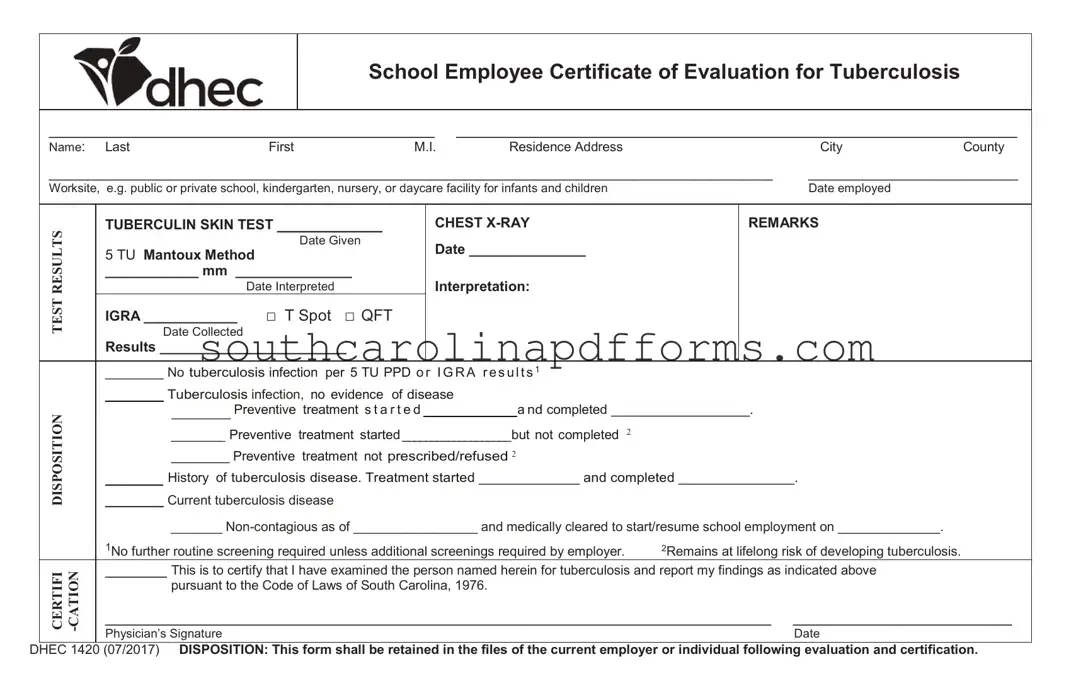The SC DHEC 1420 form plays a crucial role in ensuring the health and safety of school employees and individuals working in educational settings across South Carolina. This certificate of evaluation for tuberculosis (TB) is mandatory for anyone seeking employment in public or private schools, kindergartens, nurseries, or day care centers. It documents the results of TB screenings, which include a tuberculin skin test and, if necessary, a chest x-ray. The form captures essential information such as the individual's name, residence, employment details, and the results of their TB evaluation. Importantly, it specifies whether the individual has been found free of tuberculosis, is undergoing treatment, or is at risk of developing the disease. The SC DHEC 1420 must be retained by the employer or individual for record-keeping and compliance with state regulations. These guidelines are designed to protect not only the employees but also the children and families they serve, making it imperative that this form is completed accurately and kept up to date.
